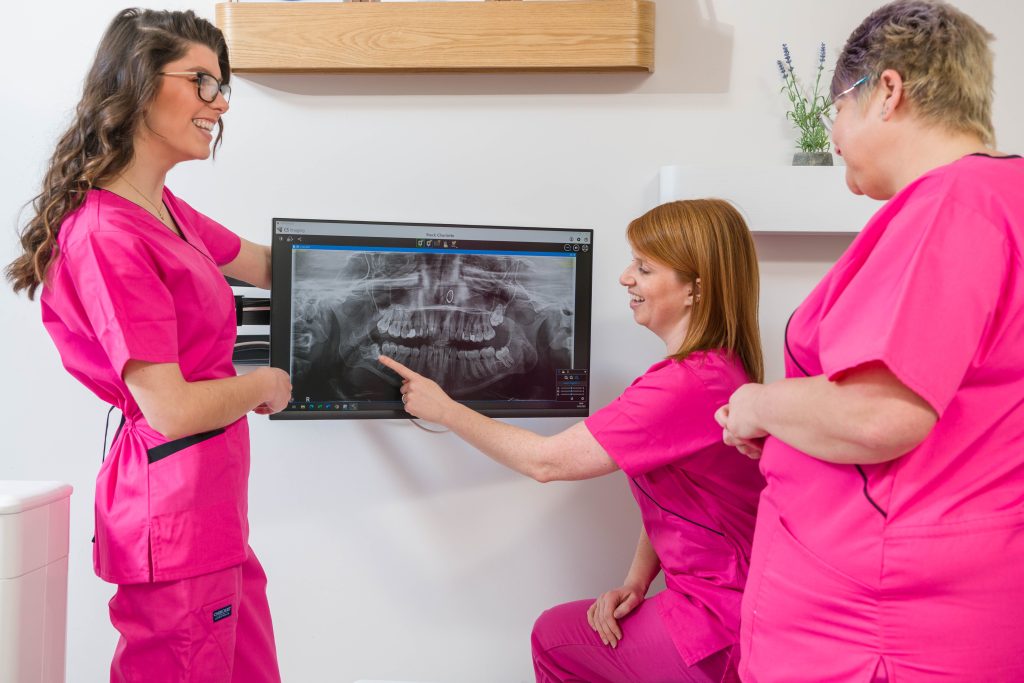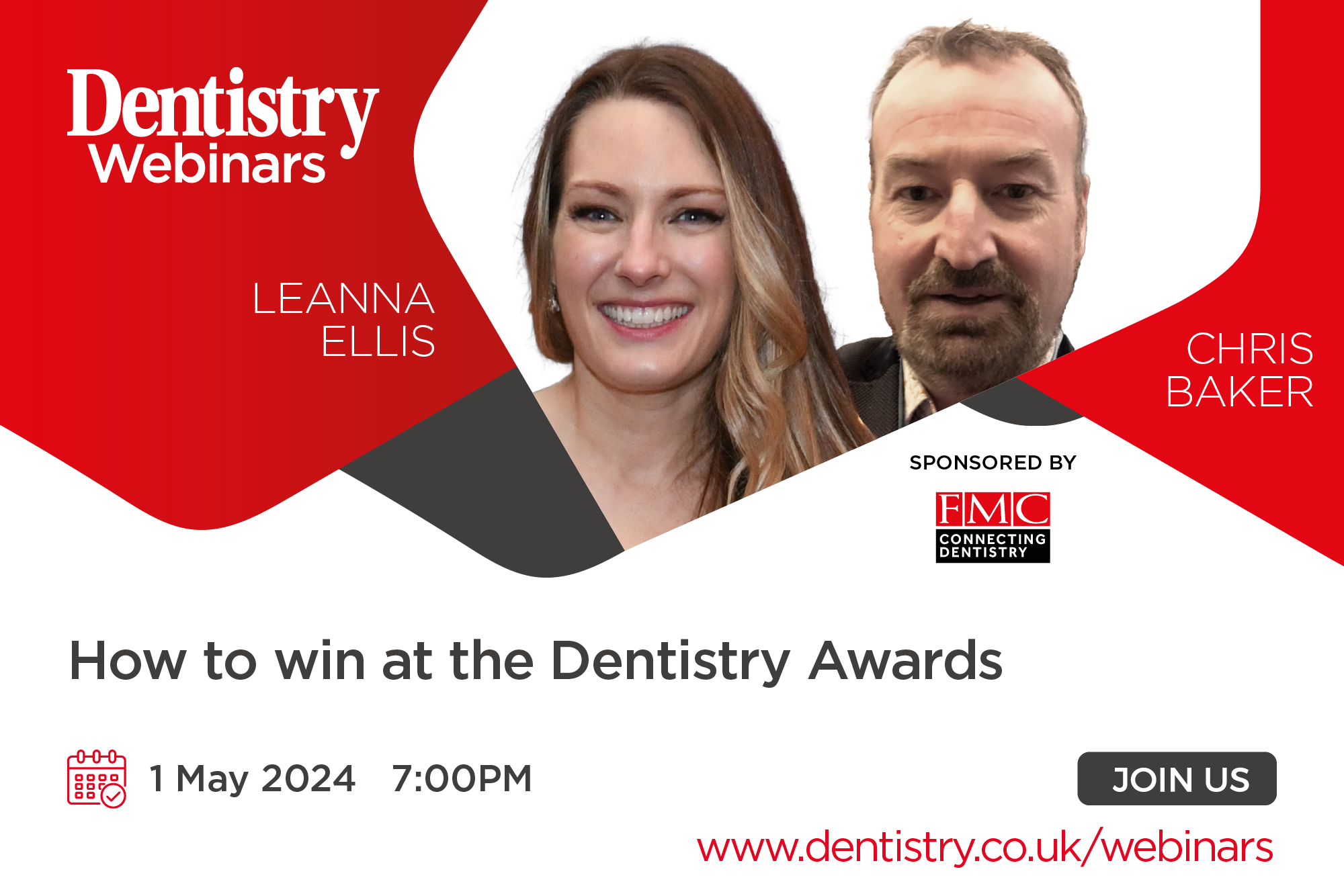
Brittany Pittham explores the power of smiling in the workplace and how dental professionals can navigate the demands of modern work environments.
Would you hire someone with an attractive smile? What is the definition of an attractive smile? Society’s perception of an attractive smile is typically characterised by straight, white teeth that are proportionate to the mouth along with healthy pink gums and fresh breath.
An attractive smile is a perceived well-balanced combination of the hard-tissue component, the amount of gingival display and framing of the lips displayed in a smile. Other factors contributing to an attractive smile may be proper tooth spacing, absence of visible dental work such as fillings or crowns, and overall facial symmetry.
Setting an example
If you are in a management role, smiling is an effective leadership technique. Managers who smile during their interactions often project an approachable image. When you’re managing others, it helps your team members feel at ease. Also, employees are more likely to trust and respect leaders who demonstrate a positive demeanour.
Additionally, smiling, like yawning, has been proven to be contagious. Those in leadership positions are well placed to spread a little cheer around the workplace simply by smiling and creating a ripple effect. As a manager, creating a positive environment helps to improve company culture, which creates long term organisational productivity.
Smiling is a sign of friendliness and approachability. When you smile in the workplace, it can help to break down barriers and build rapport with staff. Particularly in management roles, this can then bring about better communication and collaboration – people will perceive you positively, and therefore staff are more likely to cooperate with you.
A well-timed and genuine smile displays confidence and competence, thereby enhancing your professional image which can be essential within a management role. A warm smile during staff interactions can leave a lasting positive impression. In a management role, a genuine smile can be a powerful asset, signalling that you are capable and willing to assist your staff. When used appropriately, smiles can also be helpful in diffusing tension during conflicts or arguments.
Smiling and professional opportunities
The association between a person’s smile and professional opportunities can be significant. A genuine, confident smile often leaves a positive impression conveying warmth, approachability and confidence. In many professional settings, such as job interviews and client interactions, a friendly smile can help build rapport, establish trust and leave a lasting impression – potentially opening doors to new opportunities.
Additionally, individuals who smile frequently may be perceived as more likeable and competent which can positively influence their career advancements and networking opportunities. There are undeniable benefits of an attractive smile, and us as dental professionals are required now more than ever to provide extremely high quality, discrete dental restorations.
There is evidence suggesting a correlation between a healthy smile and professional success. Research has shown that individuals with good oral health, including a healthy and attractive smile, may experience various benefits in their career. Studies also suggest that people with attractive smiles are often perceived as confident and approachable which can positively impact their interactions in professional settings resulting in additional opportunities.
An attractive and genuine smile lifts your mood and those around you as you release endorphins which lower stress levels and can make the situation more positive. This positivity can boost your career opportunities by presenting with a positive outlook, giving a competitive edge over colleagues – putting you at the forefront of a manager’s mind!
Confidence and wellbeing
In addition, research has shown that people who have an aesthetically appealing smile are more likely to be promoted and be approached directly as you appear more confident. Your physical appearance matters for many reasons, and employers hiring for a position will make an initial judgment about potential employees based on their outward appearance before considering their skills or qualifications for the job.
Statistics show that 64% of hiring managers say that a candidate’s appearance plays a significant role in their decision to hire. Physical appearance can affect how others perceive you and over 70% of employers believe that outward appearance affects career advancement opportunities.
Maintaining good oral health can contribute to overall wellbeing, reducing the likelihood of oral health related issues that could affect job performance and attendance records. In a recent study by the British Dental Association, people with visible missing teeth and poor oral hygiene are likely to experience barriers in securing employment or promotions.
Attractiveness equals success
Over 57% of employees believe that attractive people have an advantage in the workplace and the smile contributes to the perception of overall attractiveness. Smiling is often associated with attractiveness because it communicates warmth, friendliness and approachability in addition to signalling positive emotions and fosters a sense of connection.
In the 2011 book Beauty Pays: Why Attractive People Are More Successful, Daniel Hamermesh summarises the associations between attractiveness and perceived success. The research reviewed by Hamermesh shows that attractive people, both men and women, earn an average of 3-4% more than people with below-average looks. An attractive person was also found to be hired sooner, get promotions more quickly, become higher-ranking in their company, and are often given extra benefits.
On the flip side, those that are perceived as attractive are often assets to their companies as they attract and secure business from others and therefore are more valuable employees. Subconsciously, employers are biased in favour of attractive people because if they are appealing to the business, they are appealing to business users.

Social demands
In an ever-changing dental world with technological advancement and constant social changes, the popularity of cosmetic procedures such as composite bonding, tooth whitening and veneers is on the rise and, as dental professionals, we have seen a large demand for these procedures day in, day out.
Have your patients ever told you the reason for seeking this treatment is to enhance their professional success? It is no surprise to note that 25% of employees have considered undergoing cosmetic procedures to improve their appearance for work due to the association of appearance and success. Over 48% of employees think that their appearance has affected their chances of securing a promotion in the workplace and has affected their opportunity for a salary increase.
Shockingly, recent studies have shown reports of over 35% of employees being told to change their appearance by their manager in the workplace and have experienced discrimination based on their appearance. It is common to find that employers offer private dental and healthcare incentives in their hiring offers – should we be questioning the narrative of this?
Are we assuming employers are offering a caring service, or are they ensuring the face of their business meets societies standards? Oral health in the workplace is important for overall wellbeing and therefore productivity, but are business more concerned about the aesthetics?
Employers have a duty of care to their staff to contribute to maintaining oral health and can consider organisational educational workshops on oral health to raise awareness and promote preventative care. As dental care professionals, we have a duty to respond to the increasing demand in our services, but we should be cautious of listening intently to our patients to ensure their needs are personal and not workplace influenced.
The power of a smile
In conclusion, the simple act of smiling in the workplace holds profound implications for productivity, morale and overall wellbeing. From fostering positive relationships to enhancing communication and reducing stress, a genuine smile can create a ripple effect that transforms the dynamics of any workplace.
As we navigate the demands of modern work environments, let us remember the power of a smile to uplift spirits, bridge divides and cultivate culture of happiness and success.
While attractiveness undoubtedly holds sway in professional settings, its influence goes beyond mere appearance. From bolstering confidence and creating favourable first impressions to fostering trust and facilitating networking opportunities, attractiveness can indeed serve as a catalyst for professional success.
However, it is imperative to recognise that competence, skills and character remain paramount in sustaining long-term success. As we navigate the complexities of career acknowledgment the role of attractiveness while championing meritocracy and inclusivity, ensuring that professional success is accessible to all.
So, let’s continue to share our smiles and continue to enhance other people’s smiles, as they are not only contagious but also invaluable in shaping a thriving and harmonious workplace ecosystem.
Follow Dentistry.co.uk on Instagram to keep up with all the latest dental news and trends.



